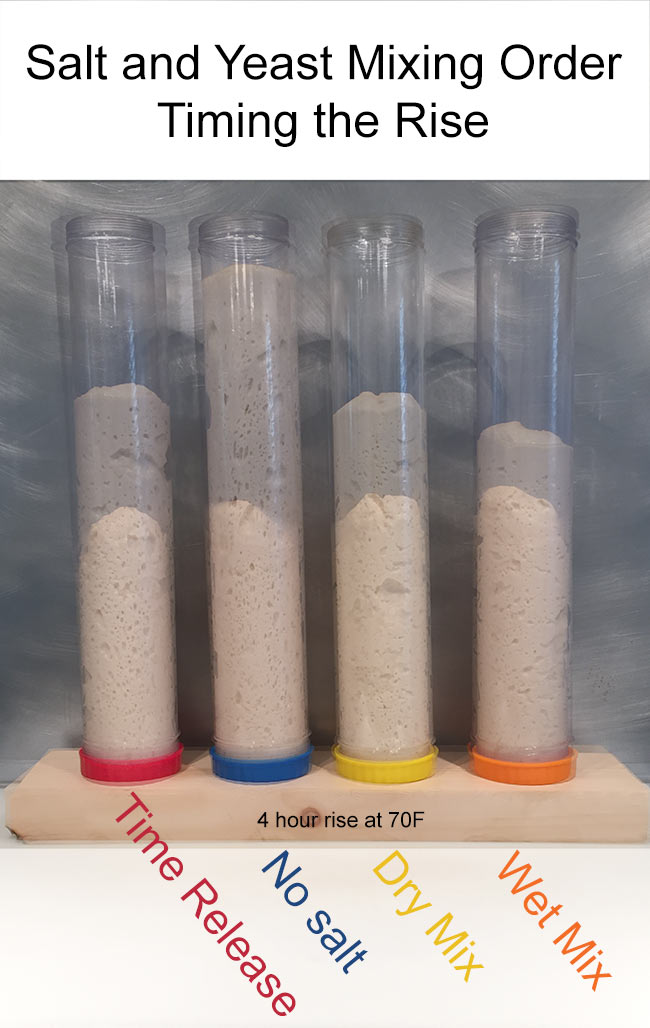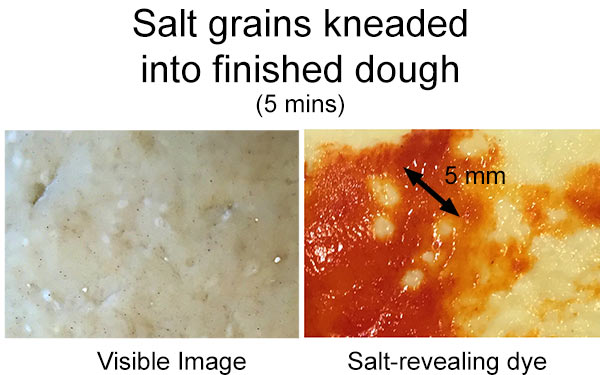
If you ever make a dough without salt youll notice a lot more and faster rise and after baking youll see large irregular holes in the bread where the yeast just got carried away. Salt draws water from everything around it and the effect of salt on yeast depends of the ability of a particular species to cope with salt trying to draw essential water away from the yeast cell also.

If you ever make a dough without salt youll notice a lot more and faster rise and after baking youll see large irregular holes in the bread where the yeast just got carried away.
Does salt kill yeast. How can salt kill yeast. Like sugar salt in high concentrations can kill yeast. Both are hygroscopic which means they absorb the water that the yeast desires.
Water gets diverted which induces osmotic stress in the yeast cells. Does Salt Kill Yeast. Salt does retard yeast growth and in concentrations that are too high it can indeed kill the yeast.
If you ever make a dough without salt youll notice a lot more and faster rise and after baking youll see large irregular holes in the bread where the yeast just got carried away. Does salt kill yeast in the dough. So when it comes to the salt it decreases the rate at which yeast is performing its action thus it retards the action of the yeast.
But if salt is added in a high amount in the dough containing yeast then the salt can potentially kill the yeast. Adding this to the dough increases extensibility and its commonly referred to as dead yeast As you can see theres potential for a double whammy if the yeast is damaged by contact with salt andor sugar. The impact of the salt or sugar on the yeast isnt immediate as it does take a little time for the damage to occur.
Salt does retard yeast growth and in concentrations that are too high it can indeed kill the yeastIn judicious amounts salt is what brings out the flavor in the bread and controls yeast. Salt doesnt kill yeast entirely unless there is too much of it but it does slow down its growth rate. So adding the salt later would allow the dough to rise more.
Beside above does yeast need salt to rise. The short answer is that yes your bread does need salt. The other important role that salt plays is as an inhibitor to the yeast in a bread dough.
Salt slows the rising process or. There are a number of remedies but people tend to ask if saltwater helps treat yeast infections. Saltwater helps with yeast infections by controlling the microbes causing it hence reducing vagina itching and other discomforts.
Whenever you feel uncomfortable arrange a salt bath for yourself as a start-up precaution. Salt does retard yeast growth and in concentrations that are too high it can indeed kill the yeast. If you ever make a dough without salt youll notice a lot more and faster rise and after baking youll see large irregular holes in the bread where the yeast just got carried away.
Salt can have a negative effect a positive effect or no effect on yeast. Salt draws water from everything around it and the effect of salt on yeast depends of the ability of a particular species to cope with salt trying to draw essential water away from the yeast cell also. Does salt kill yeast.
Heres the TLDR answer. Salt slows down yeasts fermentation because it pulls moisture from yeast cells through a process called osmosis. In too high concentrations salt can kill living yeast cells.
For best results add 2 salt to your dough. Women often get these vaginal yeast infections when they take any antibiotics. This is because the antibiotics upset the normal balance of healthy bacteria which typically live in our body.
Does Salt deactivate yeast. Salt doesnt kill yeast entirely unless there is too much of it but it does slow down its growth rate. So adding the salt later would allow the dough to rise more.
Can you make your own yeast. Wild yeast can be cultivated at home using simple ingredients. Once cultivated you can dehydrate it into dry yeast if you wish or just use the the starter to make your.
1 Salt controls yeast fermentation Salt acts as a yeast inhibitor which means that it slows down the growth and reproduction of yeast in your bread dough. Without salt present to rein in its activity the yeast will go wild eating all of the sugar available in the dough from. Salt is added for flavor dough strength and to control the rate of yeast fermentation.
Without salt yeast fermentation is too fast and wild producing large and irregular sized air cells in the crumb structure. Rapid fermentation could also cause the fermentable sugars in the formula to be used up. Does Salt Kill Yeast.
Salt does retard yeast growth and in concentrations that are too high it can indeed kill the yeast. In judicious amounts salt is what brings out the flavor in the bread and controls yeast growth so that the resulting crumb is nice and even.